Indigenous Governance Database
Haida Nation
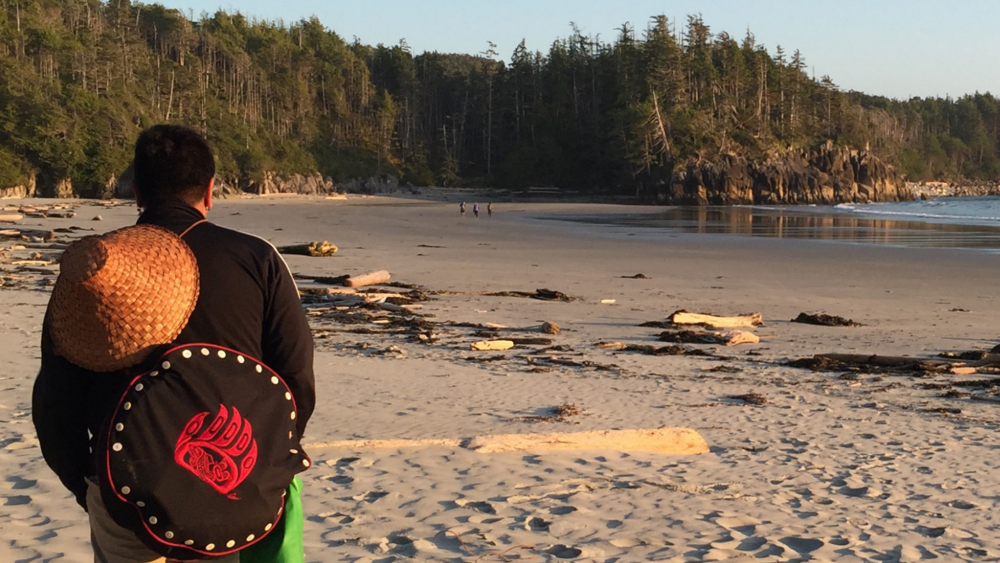
Coastal Guardian Watchmen Programs: A Business Case
As the original stewards of their territories, the Coastal First Nations along British Columbia’s North Coast, Central Coast and Haida Gwaii have been working to establish and grow Guardian Watchmen programs, in some cases for several decades. These programs have come to play an important role in…
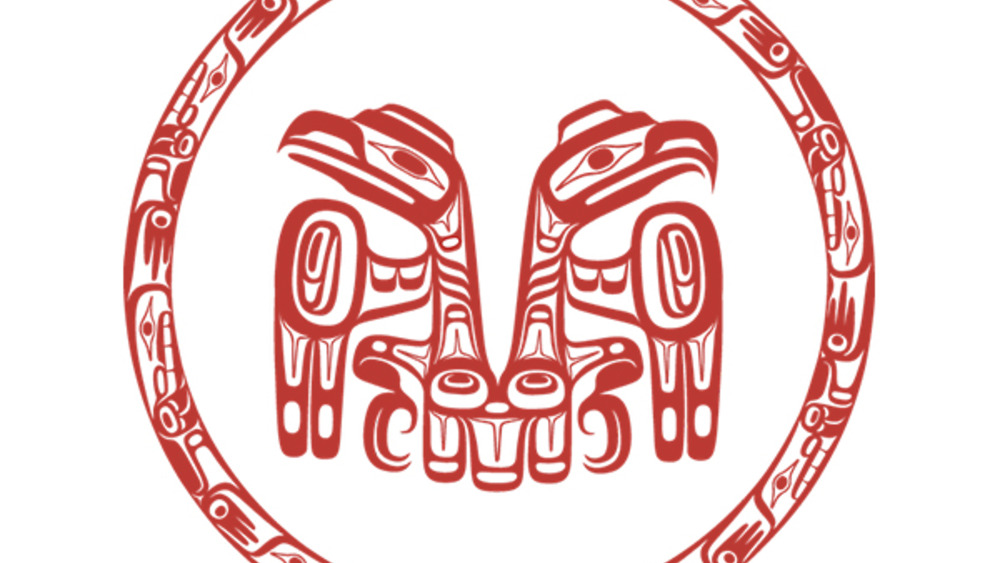
Haida Nation Constitution
Location: Haida Gwaii Population: 4,000 Date of Constitution: 2010
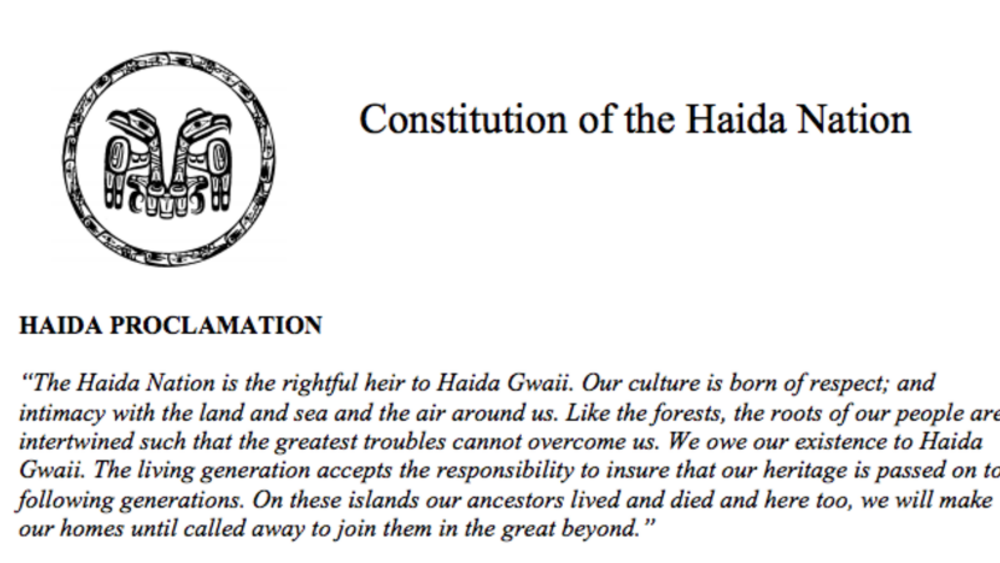
Haida Nation: Jurisdiction/Territory Excerpt
ARTICLE 1 HAIDA TERRITORIES A1.S1 The Territories of the Haida Nation include the entire lands of Haida Gwaii, the surrounding waters, sub-surface and the air space. The waters include the entire Dixon Entrance, half of the Hecate Straits, halfway to Vancouver Island and Westward into the abyssal…
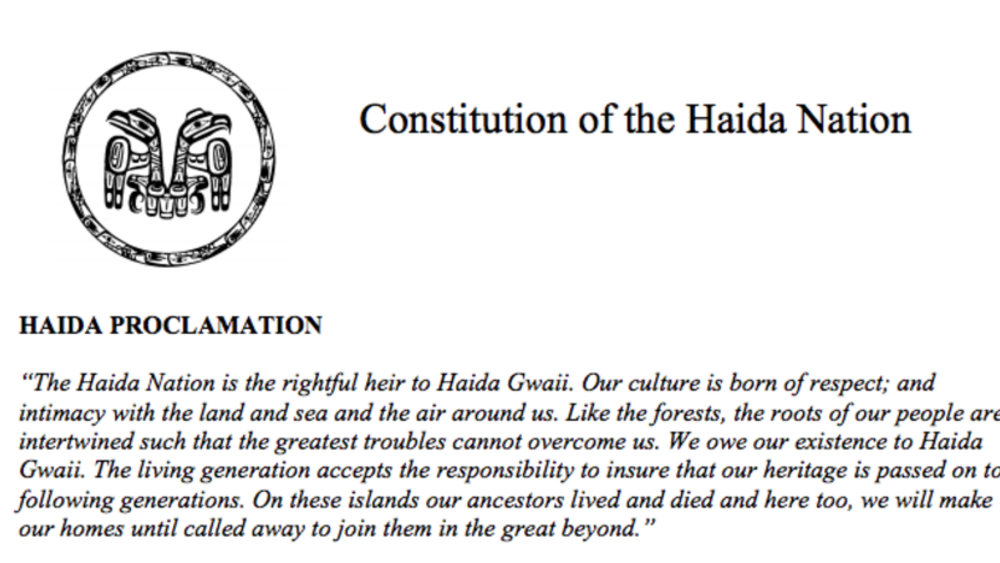
Haida Nation: Preamble Excerpt
HAIDA PROCLAMATION The Haida Nation is the rightful heir to Haida Gwaii. Our culture is born of respect; and intimacy with the land and sea and the air around us. Like the forests, the roots of our people are intertwined such that the greatest troubles cannot overcome us. We owe our existence to…

Indian Pride: Episode 104: Tribal Relations and the United States
Indian Pride, an American Indian cultural magazine television series, spotlights the diverse cultures of American Indian people throughout the country. This episode of Indian Pride features Edward Thomas, President of the Tlingit and Haida Central Council, and focuses on the topic of tribal…
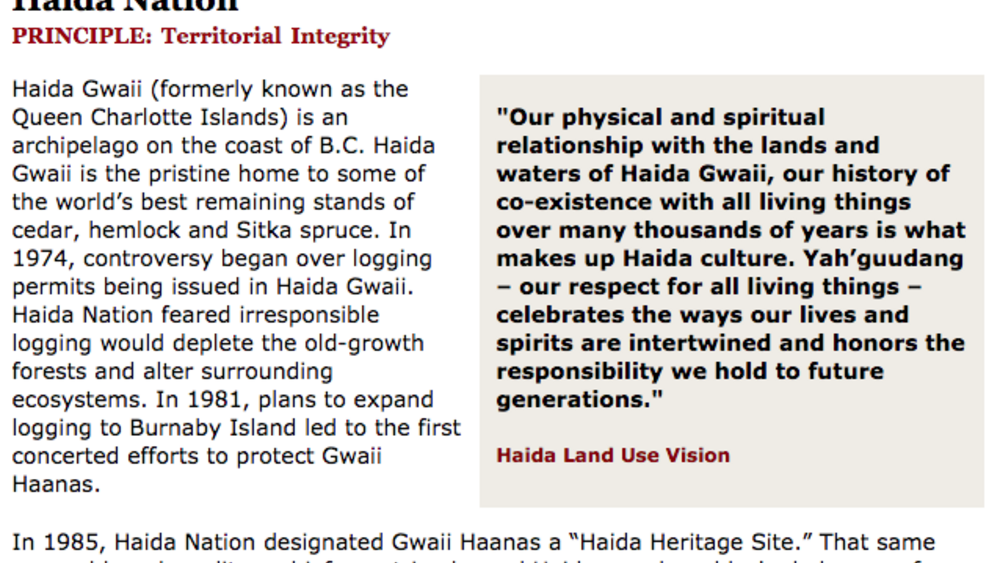
Best Practices Case Study (Territorial Integrity): Haida Nation
Haida Gwaii (formerly known as the Queen Charlotte Islands) is an archipelago on the coast of B.C. Haida Gwaii is the pristine home to some of the world's best remaining stands of cedar, hemlock and Sitka spruce. In 1974, controversy began over logging permits being issued in Haida Gwaii. Haida…
